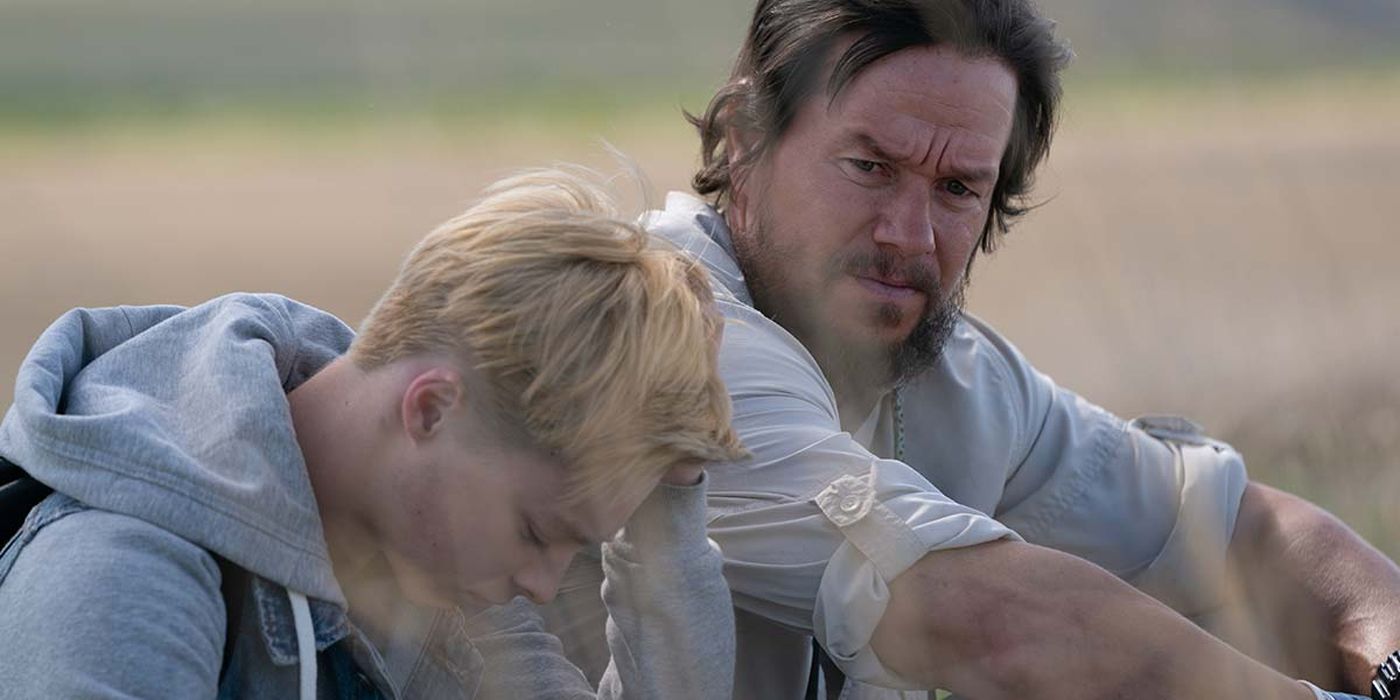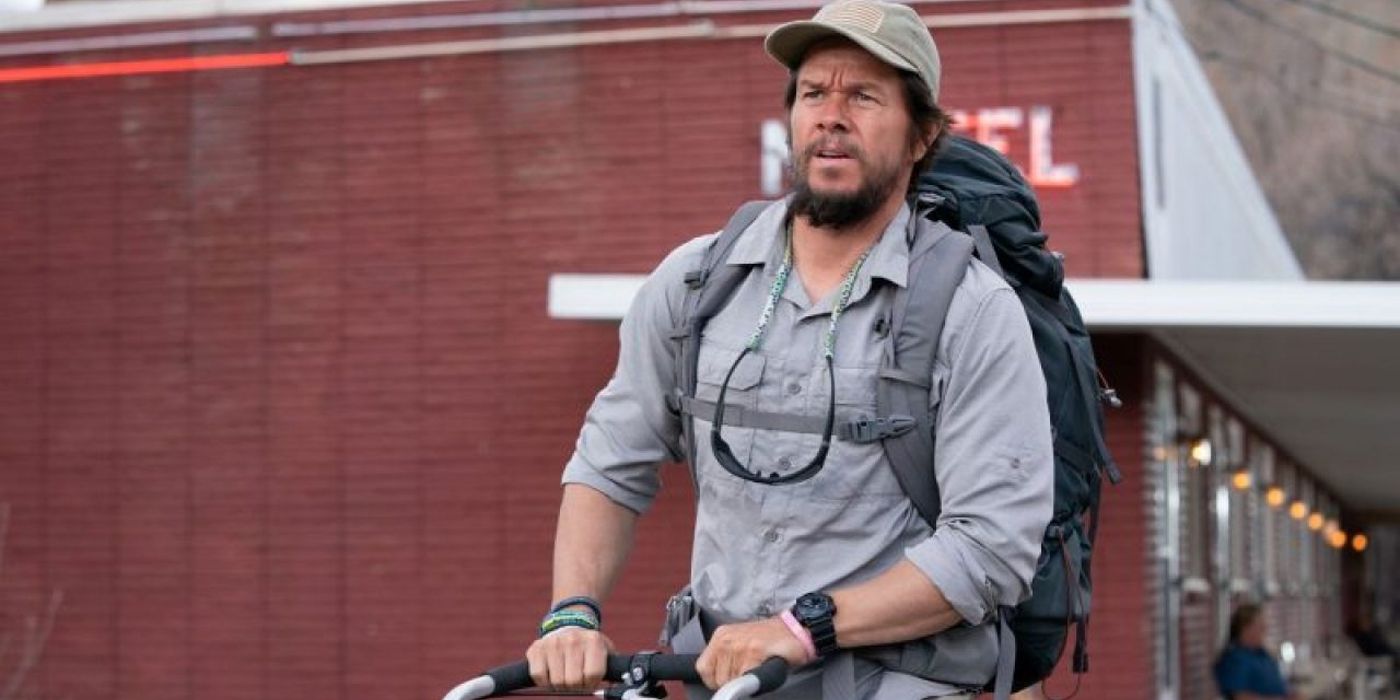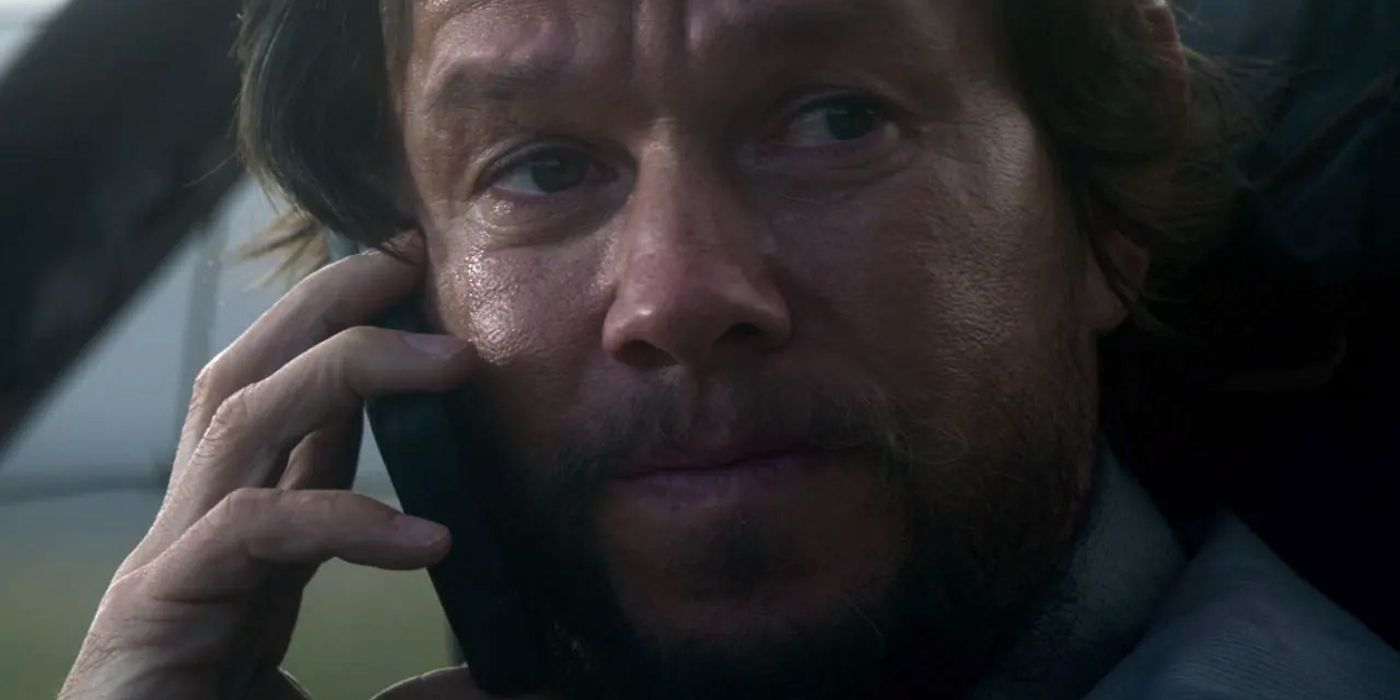
The real-life events that inspired Joe Bell are unforgettable, but the movie fails to translate the true story of father Joe Bell's unbelievable journey into a feature-length film. Directed by Reinaldo Marcus Green and with a screenplay by Larry McMurtry and Diana Ossana — the writers behind the landmark film Brokeback Mountain — Joe Bell is a movie with a message. Although there is much to love in the picture, and the subject matter is a topic that needs to be part of the public discourse, the film's many faults distract from the compelling people and events that Joe Bell is trying to honor.
Joe Bell stars Mark Wahlberg as the titular Joe, who is on a mission to walk across America in order to raise awareness about bullying. His teenage son Jadin (Reid Miller) is openly gay, but is punished for his willingness to express his individuality by relentless harassment from his peers — particularly the male "jock" students. Initially, Joe is reluctant to intervene on his son's behalf, suggesting the whole thing will blow over, and he implies that his son is bringing it on himself by acting differently. Lola (Connie Britton), Jadin's mother, is caught in the middle, often struggling to perform both roles as the loving parent to a suffering child and the supportive partner to an increasingly aggressive husband.

The narrative in Joe Bell is non-linear, intercutting between the events in the movie's present and flashbacks to the past. In the present, Joe is part-way through his journey to honor his son and speak out against the bullying that LGBTQ teens face on a daily basis. He is passionate about the cause, but is often motivated by his son's encouragement: accompanying him on the road, Jadin is often both a source of support as well as a harsh voice of truth. He challenges his father, putting him in his place when necessary and reminding him of what's at stake.
Miller and Wahlberg do a lot of heavy-lifting in Joe Bell. It's no coincidence that the majority of their scenes together are included in the trailer; the back and forth between the vibrant gay son and his rugged, cantankerous father is fertile territory for heartwarming dialogue. There's a tension between the two characters that is sweetened by the unspoken respect and love that these two men share. Unfortunately, however, the premise of the film — and the director's approach to dramatizing the events — undermines these moments to the point of being borderline unwatchable.

The main issue with Joe Bell is that it's based on a true story — a well-known set of events that happened within the last decade. In March 2013, Joe Bell embarked on a two-year cross-America walk in order to tell his son's story, raise awareness about the real harm caused by bullying, and encourage others to be more accepting towards those who are different. The core premise of Joe Bell is the personal journey of the father as he grapples with a tragedy. The movie's marketing doesn't hide this — the events are heavily hinted from the trailers — and even those who aren't familiar with the story (or don't remember) would likely go into the movie with a set of expectations. Yet, for some baffling reason, what happened to Jadin is treated as a "twist" reveal a full 45 minutes into the film. This makes the entire first half of the film torturous.
Perhaps the biggest problem with Joe Bell is that it's never clear whose story is being told. The first half attempts to humanize Jadin by giving him what should be rich background scenes: coming out to his father, getting bullied at school, and having his first kiss with his crush. These moments fail to connect, however, because they're at odds with the scenes set in the present, which focus not on Jadin, but on Joe. The tone, focus and pacing are all unbalanced — and ultimately, both stories are short-changed as a result. There's an inconsistency between the confident, outspoken Jadin who walks alongside his father and the crushed, suffering teenager just struggling to get by, which is never explored adequately, creating upsetting implications. If Joe Bell established Jadin as a vibrant young man worn down over time by harassment, that might work. Instead, it comes across like the father's own wish-fulfillment fantasy: the son, and the relationship, he regrets not having.
There are glimmers in Joe Bell of the movie that could have been: Lola's weary resignation when talking to her pig-headed husband, Jadin's tender vulnerability during his love scenes — these are glimpses at the fully developed characters, hidden by the story's many structural issues. Similarly, the soundtrack is fantastic, featuring various laidback and sentimental folk songs that pair nicely with the rural setting. But music is often wasted on scenes that feel inconsequential. Wahlberg's Joe is unrelentingly aggressive at times, making him completely unlikable (let alone relatable) — a fatal flaw for a movie that should be celebrating its titular character, warts and all. Instead, Joe Bell reeks of self-importance, relying too heavily on the gravity and political clout of its topic, and failing to make an enjoyable (if sad) film. Ultimately, there's a lack of attention to detail in Joe Bell that undermines the core story and does a disservice to the people and events it should be commemorating.
Joe Bell will release exclusively to theaters on July 23, 2021. The film is 90 minutes long and is rated R for language including offensive slurs, some disturbing material, and teen partying.
No comments:
Post a Comment